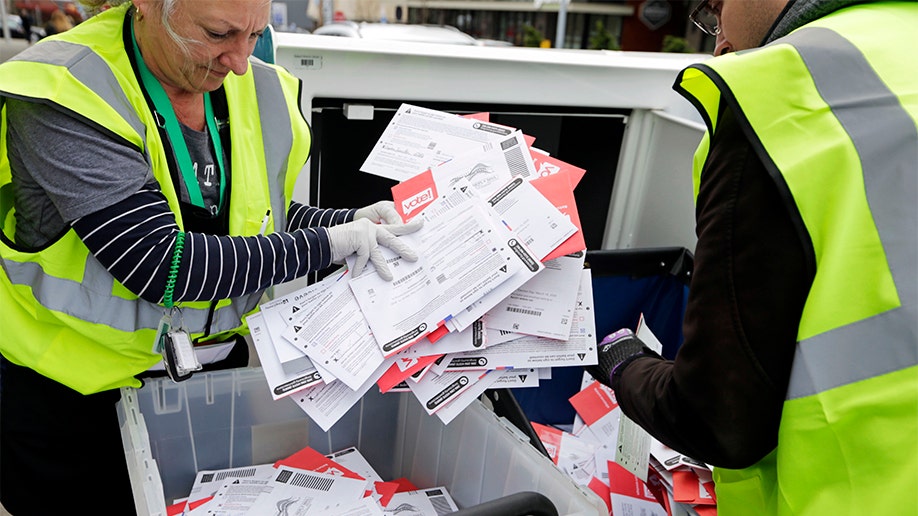
Republican and independent voters are twice as likely to not reveal their true preference for president in a telephone poll, a study found.
CloudResearch, an online market research and data collection company, found that 11.7% of Republicans and 10.5% of independents said they wouldn’t share their true opinion, while only 5.4% of Democrats said the same.
“That raises the possibility that polls understate support for President Donald Trump,” Bloomberg reported Friday.
TRUMP OUTPERFORMING HIS 2016 CAMPAIGN IN KEY BATTLEGROUND STATES, EVEN AS HE TRAILS BIDEN
According to CloudResearch, some survey responders said they thought it would be “dangerous” to express an opinion outside the “current liberal viewpoint.”
While the survey was conducted online, inquiries about the results were made via phone interviews.
A voter casts a ballot at a polling station inside the Brooklyn Museum in New York in June 2020. (AP Photo/John Minchillo, File)
Participants were asked for their political preference for president, how they felt about sharing that preference in a phone poll, and later whom they actually supported for the office.
CloudResearch explained to Bloomberg that political party affiliation was the sole characteristic that correlated consistently with reluctance to divulge true presidential preference. There were reportedly no correlations with age, race, education or income.
The research group used two different samples to draw its conclusions. In one control group, 1,000 respondents were evenly divided among Democrats, Republicans and independents. The other included a different set of 1,000 people selected to match the demographics of likely voters, regardless of party.
The findings once again highlight whether “shy” Trump voters were undercounted in polling data prior to the 2016 election, which his Democratic rival Hillary Clinton had been projected to win.
An exhaustive post-mortem published by the American Association for Public Opinion Research found that some Americans who voted for the president did not show their support for him until after the election and that they outnumbered late-revealing Clinton voters.
The association also explained that while those who admit changing their minds normally break evenly between the Republican and Democratic candidates, people who did so in 2016 voted for Trump by a 16 percentage point margin.
Nevertheless, evidence of a “shy” Trump effect remains inconclusive, and there were limitations to the study.
The public research group theorized that if voters did not want to tell a live interviewer they supported Trump, the president would do worse in live-interview polls than in automated polls — but he did not.
CloudResearch Co-Chief Executive Officer and Chief Research Officer Leib Litman told Bloomberg that many people were just as distrustful of live calls as automatic calls because the response would be recorded.
CLICK HERE FOR THE FOX NEWS APP
National polls ahead of November have shown Democrat Joe Biden leading Trump in many key swing states, but in recent weeks the president has gained some ground.
According to recent Real Clear Politics averages, Trump is largely outperforming his 2016 benchmarks in some of the states most important to an Electoral College victory with a little more than two months to go until Election Day.
